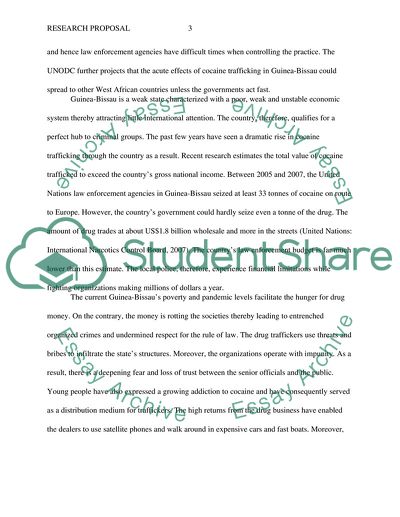Cite this document
(Effects of Cocaine Trafficking In Guinea-Bissau Research Paper, n.d.)
Effects of Cocaine Trafficking In Guinea-Bissau Research Paper. Retrieved from https://studentshare.org/history/1879790-research-proposals-how-does-the-trafficking-of-cocaine-affect-guinea-bissau
Effects of Cocaine Trafficking In Guinea-Bissau Research Paper. Retrieved from https://studentshare.org/history/1879790-research-proposals-how-does-the-trafficking-of-cocaine-affect-guinea-bissau
(Effects of Cocaine Trafficking In Guinea-Bissau Research Paper)
Effects of Cocaine Trafficking In Guinea-Bissau Research Paper. https://studentshare.org/history/1879790-research-proposals-how-does-the-trafficking-of-cocaine-affect-guinea-bissau.
Effects of Cocaine Trafficking In Guinea-Bissau Research Paper. https://studentshare.org/history/1879790-research-proposals-how-does-the-trafficking-of-cocaine-affect-guinea-bissau.
“Effects of Cocaine Trafficking In Guinea-Bissau Research Paper”, n.d. https://studentshare.org/history/1879790-research-proposals-how-does-the-trafficking-of-cocaine-affect-guinea-bissau.


